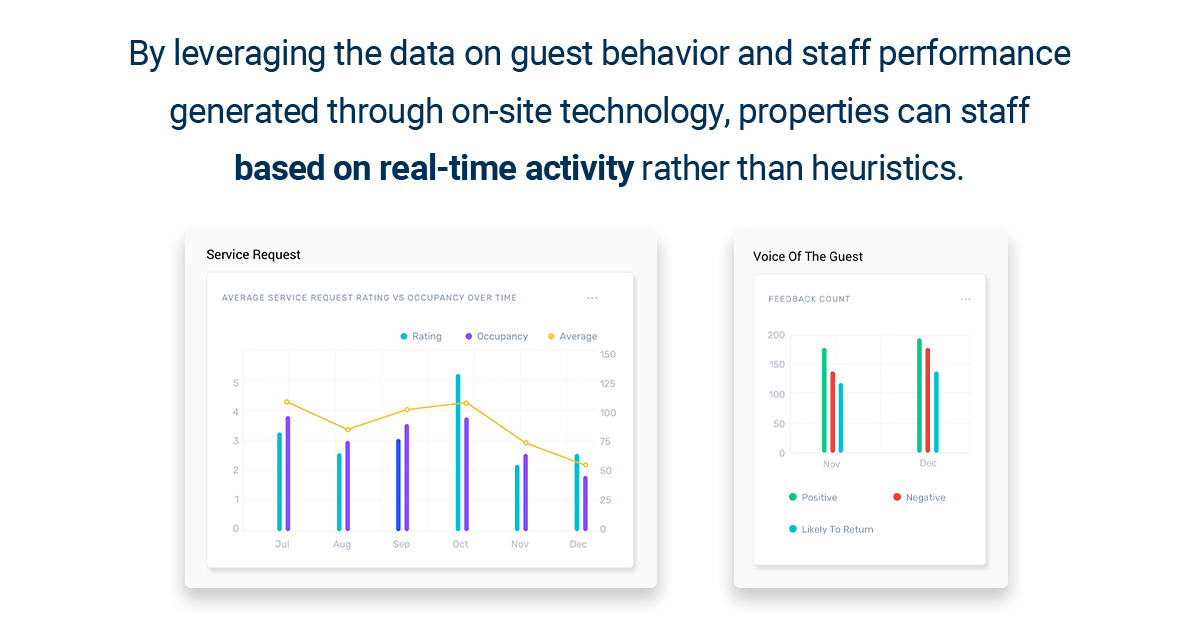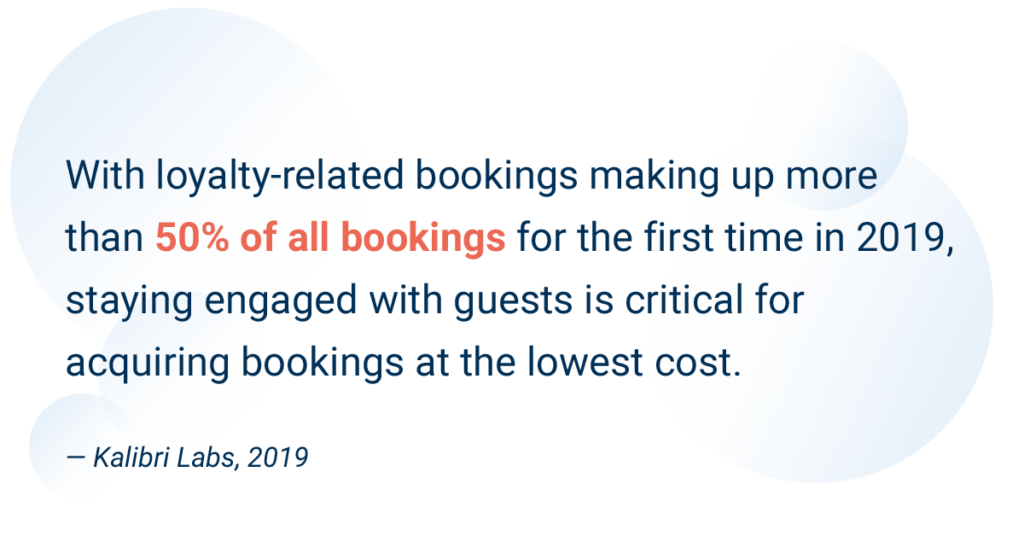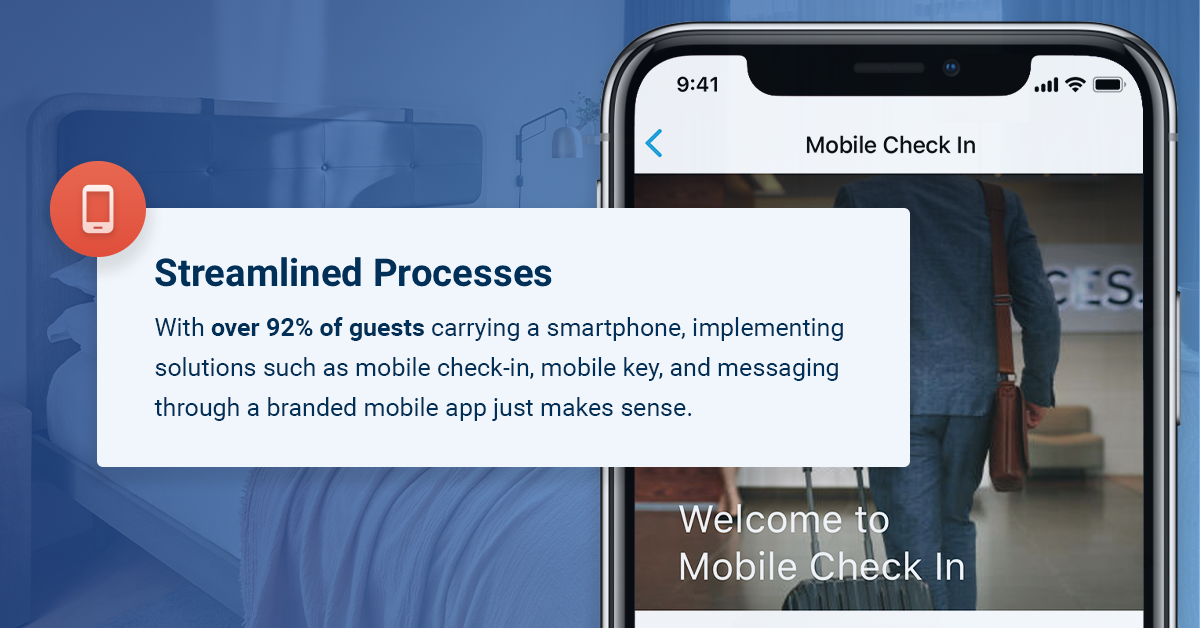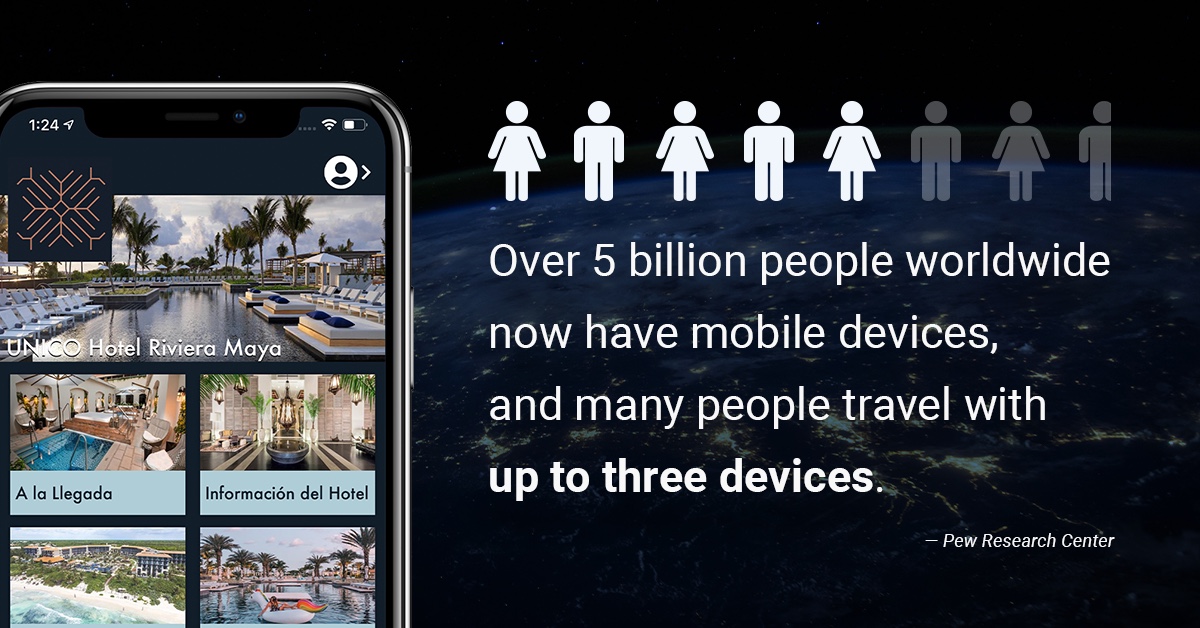The right tools can help you do more with less
With the coronavirus outbreak causing dramatic shifts across the hospitality industry, many hoteliers may be faced with the unfortunate and difficult task of maintaining operations with a limited staff. While hotels may be asked to do more with less during this period of uncertainty, understanding how to automate hotel operations in order to run leaner can further drive down costs without driving down service levels.
Hospitality technology can reduce the time and effort involved with carrying out service tasks, allowing guest needs to be fulfilled more quickly and with fewer resources. Technology solutions allow properties to automate guest requests and other activities through a centralized platform, capturing detailed data performance metrics and ensuring that service doesn’t drop off with a reduction in on-site staff.
Providing Self-Service Tools to Guests
The simplest way to reduce the burden on a lean staff is to provide guests with tools and technology that empower them to ‘self-serve’ their basic needs. By offering mobile check-in through a guest app, inbound guests can verify their check-in information before arriving and skip the front desk upon arrival, reducing the amount of front desk staff needed. Once the guest is on property, it is important to provide multiple self-service channels for common requests such as in-room dining, housekeeping services, and more. For example, by allowing guests to request more towels through an in-room tablet, requests can be automatically routed to the appropriate department (versus routed manually by a phone attendant).
Tying automated service requests into a corresponding back-end platform ensures more efficient tracking and fulfillment, which requires fewer on-site staff resources to effectively manage. By automating hotel operations, staff can save upwards of three minutes of employee time per guest request. While this may not seem like a lot on an individual request level, processing thousands of daily requests can quickly lead to hundreds of hours of staff time saved.
Making Data-Backed Decisions
Not only can technology tools have a direct time-saving benefit, they can also unlock opportunities for efficiency optimization by capturing detailed performance data and informing operational decisions. By leveraging the data on guest behavior and staff performance generated through on-site technology, properties can staff based on real-time activity rather than heuristics. This is particularly beneficial in use cases such as in-room dining – by analyzing the types of dishes ordered by guests as well as the times those dishes were ordered, properties with on-site dining options have the information needed to scale down kitchen operations during times when in-room dining volume is low, or the dishes being requested at certain times require less preparation.

Capturing guest behavior data at scale and analyzing it in the context of staffing is especially prudent in times of difficulty. The coronavirus outbreak will likely have long-term effects on property management strategies and priorities, and hospitality technology provides scalable solutions that can seamlessly adapt to shifting operational needs.
Your hotel may be asked to do more with less. We can help. To learn more about how you can automate hotel operations, schedule a demo with our team today.


